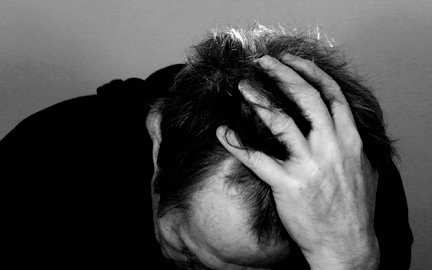Sumter mental health counselors helping children, couples cope during COVID-19 crisis
NUMBERS TO KNOW
National Suicide Prevention Line: 1-800-273-TALK
National Crisis Text: Text HOME to 741741
S.C. Department of Mental Health: 1-833-364-2274 or www. scdmh.net for resources
shelbie@theitem.com
With the coronavirus causing many people to work from home, mental health experts continue to serve their clients as COVID-19 causes an increase in stress, anxiety and depression for adults and children across the U.S.
In Sumter County, some mental health specialists, like local counselor Catherine "Katie" Gibson, are continuing to serve their clients safely in person as much as possible. To her, this is a time when clients are most in need of a counselor's guidance.
"Everyone is stressed. I don't think I know of anybody who is not freaking out a little bit about all of this, and I think that changes day to day and hour to hour," Gibson said. "I'm still seeing people in person in my therapy practice, but we've moved to telehealth. A lot of therapists that I know that are seeing adults, specifically, have moved to telehealth so that they can see clients and provide support."
Telehealth is where health-related services distribute information and work with patients via electronic information and video technologies. Health services have been using telecommunication services like Zoom, Facetime and phone conferences to stay in touch with clients who are unable to meet in person.
"I think it's been a pretty successful transition," Gibson said. "That's what we're doing for anyone who has any type of illness or doesn't feel comfortable coming into the office."
Gibson said she always prefers sitting in person with her clients because she does her best to provide a relaxing environment with no distractions, but she does think telehealth is effective and essential during this time. However, being a playtime therapist for children, Gibson said in-person interactions are the most effective. She has been disinfecting the playroom and placing one-hour gaps between each session for those who do still come in.
Gibson said it is important to help children cope during these times, as COVID-19 has affected them through school, not being able to hang out with friends and changing their sense of normal. To Gibson, children need help now more than ever, and she said parents can play a major role.
"That's been a big shift for kids," Gibson said. "I think parents really set the tone with how that impacts their kids."
Gibson said having parents around helping their children understand what's going on makes a difference. It not only comforts a child, but it will also make a parent and child's relationship stronger.
"I trust my parents and my private practice to be able to have those conversations with their kids," Gibson said. "You're the expert on your child. I can provide help and assistance and be that support, but parents, you're a parent, you know your kid well."
Children also tend to rely on a sense of stability, consistency and routine at a young age. Gibson said all of that is important to children and makes them feel safe and secure, but with COVID-19 disrupting that sense of stability, she has seen an increase in depression in children.
"You may see some increase with depression or anxiety in kids right now because the world has shifted so much," Gibson said. "Now, we're in a time where uncertainty is really the only expectation, where things and news change consistently. That's really what we're really seeing impact our kids and causing those increased rates of anxiety and depression."
Gina Smith, a counselor at Lifeway Counseling, said she has also seen an increase in depression, especially in patients who are already suffering from it.
"They're struggling," Smith said.
Working with introverted clients, she said they recently realized that they depended on having a place to go and being surrounded by other people for comfort, and that has now been taken away from them as stores, restaurants and workplaces have shut down.
"We're just used to being attached and having some other place to go," Smith said. "I'm certainly hearing people sort of try to come to terms with that, and I'm offering help around how they can think about it."
People have also experienced everything from restlessness and loss because of COVID-19 and living in isolation, according to Smith, and she has especially seen the virus affect couples.
"The couples that I see for therapy, their couple distress is still really front and center for them," Smith said. "We need to depend on each other more, and they are in the home together more. There's less distraction."
However, some need space from each other. Smith has even seen new calls from couples reaching out to her during this time, as they need even more help to navigate that distress in isolation.
"Honestly, it makes me nervous some," Smith said. "I think this is such a time where we're going to rise to our best, or we're going to maybe stoop to our least, and I see that in couples, families and relationships."
Even in these hard times, Smith does her best to think positive for her clients and hopes for a beneficial outcome.
"What I'm seeing coming from this, we're learning about ourselves. Once we're not so upset and anxious in that moment, we're learning about ourselves and about the value of other people to us," Smith said. "I pray and hope that will be a benefit, that we learn about ourselves and come out with a deeper appreciation for some things that we used to take for granted."

